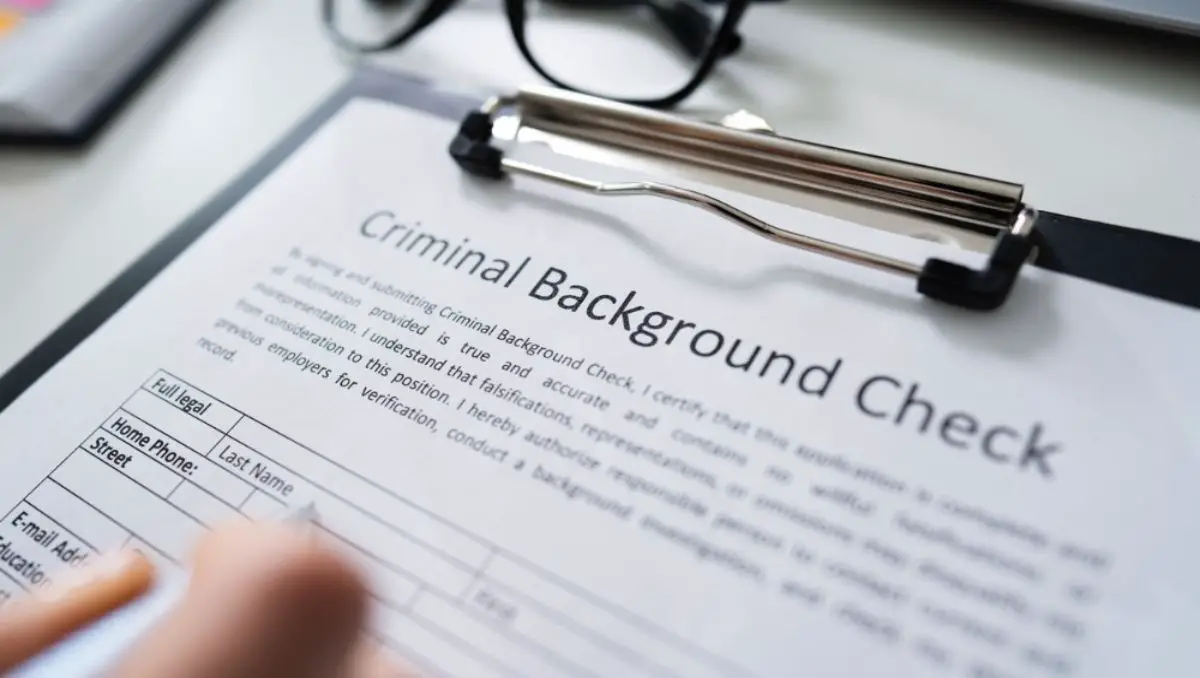Securing a Section 8 housing voucher can be a lifeline for many individuals and families, offering much-needed assistance with housing costs. However, the path to approval often involves a critical checkpoint: the Section 8 background check.
The duration of a Section 8 background check can vary, but it typically takes around 2 to 6 weeks to complete. The exact time frame depends on the case’s complexity, the references’ responsiveness, and the specific policies of the housing authority.
In this article, we will explore the intricacies of the Section 8 background check and provide you with valuable insights into what factors impact its duration. We’ll uncover whether there are ways to expedite your application and offer tips to navigate through any potential roadblocks.
What is Assessed in a Section 8 Background Check?
When conducting a Section 8 background check, several crucial pieces of information are verified to ensure that potential tenants meet the program’s eligibility requirements.

#1 Your current income
One of the key factors housing authorities assess is your household’s income. The Section 8 income verification aims to ensure that the program assists those with limited financial means. Section 8 applicants must have an income below a certain threshold, often set at a percentage of the area’s median income.
#2 Criminal records
Criminal records are also checked to determine if an applicant has any past convictions that may pose a risk to the safety of other residents, especially those seeking public housing for felons. This includes searching for offenses such as violent crimes, drug-related charges, or any history of property damage.
#3 Rental history
Rental history plays a significant role in the verification process. Previous landlords may be contacted to gather information on an applicant’s past behavior as a tenant. This helps determine whether they have been responsible for previous rental properties and paid rent on time.
#4 Credit history
Credit history is another essential factor considered during a Section 8 background check. It provides insight into an applicant’s financial responsibility and can indicate their ability to manage debts.
#5 References
Reference checks may be conducted where personal references provided by the applicant are contacted for additional insights into their character and reliability as a tenant.
Factors Affecting the Length of Section 8 Background Check
Several factors can influence the process when it comes to the length of a Section 8 background check.

1. Complexity of the applicant’s history
The complexity of your history can significantly impact how long it takes for your section 8 background check to be completed. If any of your background information is complicated or require further investigation, it may result in a longer processing time.
Regarding your employment history, the background check will verify the information provided on your application, and you may contact previous employers for additional details. A thorough examination of your criminal record will also be conducted to ensure compliance with Section 8 guidelines.
Furthermore, the rental history portion of the check involves contacting previous landlords or property managers to gather information about past tenancies. Your credit report will be assessed to evaluate financial responsibility and determine if there are any outstanding debts.
Lastly, personal references play a crucial role in assessing character and reliability. Contacting these individuals may take time, depending on their availability.
2. Housing authority policies and procedures
Regarding Section 8 background checks, housing authority policies dictate the application process and eligibility requirements. These policies ensure that only qualified individuals are granted assistance through the program.
A critical aspect of these policies is income verification, which involves assessing an applicant’s financial situation to determine their eligibility for assistance.
Tenant responsibilities also significantly influence the housing authority’s decision-making process. These responsibilities include adhering to lease agreements, maintaining the property well, and respecting neighbors’ rights.
3. Responsiveness of references and third parties
Ensure your references and third parties quickly respond and provide the necessary information, as their responsiveness can significantly impact your chances of obtaining assistance.
Make sure that you choose individuals who can vouch for your character and stability, as their feedback will be taken into consideration during the background check process.
Additionally, consider the third-party response time when selecting references. It’s vital that they promptly reply to any inquiries made by the housing authority to ensure the timely processing of your application. Be sure to provide accurate contact details so that the housing authority can easily reach out if needed.
4. Accuracy and completeness of applicant information
Applicant verification is essential in confirming the identity and eligibility of individuals seeking housing support. Document validation is crucial in assessing the authenticity of important documents such as identification cards, proof of income, and residency.
Employment history verification helps determine stability and ability to meet financial obligations, while credit history evaluation provides insight into an applicant’s financial responsibility. Lastly, checking criminal records helps ensure the safety and well-being of other residents within Section 8 housing communities.
By scrutinizing these aspects, housing authorities can better understand an applicant’s background and make reliable decisions for their benefit and that of the community.
5. The volume of applications being processed
The application processing time is affected by the volume of applications received. When there is a backlog of applications, it can lead to delays in completing background checks and reviewing eligibility. Staffing shortages can also hinder efficiency, causing further delays.
6. Background check errors or discrepancies
Background check discrepancies can arise from various factors, such as outdated information, identity theft, or incomplete records.
Common errors include incorrect criminal history, mistaken identities, and inaccurate financial information. To resolve these discrepancies, it is crucial to gather evidence to support your claims and contact the appropriate authorities or agencies responsible for conducting the background check.
Failing to address these issues promptly can have serious consequences, including denial of Section 8 assistance or even legal repercussions.
To prevent background check errors, ensure that all personal information provided is accurate and up to date. Double-checking documents and maintaining open communication with caseworkers can also help detect and rectify any mistakes before they cause unnecessary delays or complications in accessing vital assistance.
So, How Long Does Section 8 Background Check Take?
Waiting for the outcome of your Section 8 application can be an anxious time, and understanding the timeline of the background check process can help ease some of that uncertainty.

On average, Section 8 background checks typically take between 2 to 6 weeks to complete, but it’s important to note that this is just an estimate. The actual duration can vary significantly based on various factors.
The complexity of your background plays a significant role in determining how long the background check will take. If your history involves multiple addresses, employment changes, or legal issues, it may take longer for the housing authority to verify all the necessary information.
Additionally, the specific policies and procedures of the housing authority in your area can influence the timeline. Some authorities may have more streamlined processes, while others may require more extensive checks, leading to longer processing times.
One essential aspect is the responsiveness of your references and third parties involved in the background check. If your references and former landlords promptly provide the requested information, it can help expedite the process.
Preliminary Waitlist vs. Priority – What Does This Mean?
The Preliminary Waitlist is a fundamental stage in the Section 8 application process, serving as the starting point for applicants seeking housing assistance. When you submit your Section 8 application, it enters this pool of applicants awaiting an eligibility interview. It’s the first step towards accessing the benefits of the Section 8 program.
During this stage, the authority will review your application to ensure it is complete and accurate. This includes verifying essential details such as your income, household size, and eligibility status. Once your application successfully passes this initial screening, you’ll be placed on the Preliminary Waitlist.
On the other hand, the Priority system employed by Housing Authorities is a critical aspect of the Section 8 application process, as it determines the order in which applicants receive housing assistance.

Each application submitted is carefully evaluated, and a priority code is assigned based on the information provided. This code ranks applicants by their level of need, with the aim of allocating housing assistance to those who require it most urgently.
For instance, applicants with lower income levels or larger households may receive higher priority, as they typically face more significant housing challenges.
The waiting period can vary depending on several factors, including demand for Section 8 assistance in a particular area. Applicants on the preliminary waitlist may experience a longer waiting period compared to those with priority status.
To increase your chances of moving from the preliminary waitlist to priority status, it’s crucial to promptly provide any outstanding documentation or information requested by your local housing authority.
Can You Expedite Your Section 8 Application?
The principle of not expediting applications upon individual or third-party requests underscores the fairness and equity of the Section 8 housing program.
The allocation of Section 8 vouchers is primarily guided by a Priority system and the original application date. This system ensures that housing assistance is distributed based on need and urgency, prioritizing those facing the most challenging circumstances. This approach is essential to maintain the program’s integrity and assist those who need it most urgently.
Once an applicant has had an eligibility interview, it becomes even more crucial to adhere to all requests for documentation promptly. Complying with requests for documentation expedites the application process and demonstrates your commitment to securing housing assistance.
Therefore, it’s in applicants’ best interest to remain vigilant, organized, and responsive throughout this phase to maximize their chances of success in securing Section 8 housing vouchers.
Can You Check Your Section 8 Application Status?
You can check the status of your Section 8 application through various methods.
The first step is to contact your local Public Housing Authority (PHA) and inquire about their specific process for checking application status. They’ll provide you with information on how to access updates on your application.
In many cases, PHAs have online portals or hotlines that allow applicants to check their status quickly. These portals often require you to input personal identification information such as your Social Security number or case number. Once logged in, you can view where your application stands in the review process.
Lastly, stay informed about waiting list updates from your local PHA. They may periodically update applicants regarding their position on the waiting list or any changes in eligibility requirements.
Common Delays in the Background Check Process
If you’re wondering about common delays in the background check process for your Section 8 application, there are a few key points to consider.

Incomplete Application
Missing documents or incomplete forms can confuse and hinder the progress of the application review. To prevent delays, it’s essential to carefully review all requirements before submitting your application.
Inaccurate Information
Inaccurate information includes incorrect addresses, rental history, or criminal records. It’s important to double-check all the information you provide to ensure its accuracy and completeness. If discrepancies or inconsistencies are found during the background check, it may take additional time to resolve these issues and confirm your eligibility.
Background Check Errors
Background check mistakes, inaccuracies, discrepancies, or even small mistakes can cause unnecessary setbacks. Any discrepancies between the information provided on your application and what is found during the background check can raise red flags and further delay the process.
Tips for Applicants Waiting for Section 8 Approval

The waiting period can feel long, but there are some steps you can take to stay informed and make the process smoother.
- Familiarize yourself with the approval process. Understanding how your application will be reviewed and what criteria are used can help manage expectations.
- Be aware of the application timeline. While it varies depending on factors such as the volume of applications received and staff availability, approval generally takes several weeks to months. Remember that patience is vital during this time.
- Double-check your documents. Ensure that everything is complete and accurate to prevent unnecessary delays.
- Stay updated on your application status by regularly contacting the housing authority or checking their online portal if available. They may provide estimated timelines or updates on where your application stands in the review process.
- Keep in mind that many others are also seeking affordable housing opportunities.
As you anticipate the outcome of your Section 8 application, you might also be interested in reading about Section 8 rules on getting married to a felon.
What Happens if Your Background Check is Denied?
If your background check is denied, it’s important to understand the reasons behind it and take appropriate action.
- The PHA must provide a written notice explaining the reasons for an applicant’s ineligibility.
- The PHA must provide a copy of the criminal background check relied upon for the decision.
- Applicants should carefully review the background check to ensure its accuracy.
- The notice does not represent the final decision; applicants have the right to request an informal hearing.
- During the informal hearing, applicants can demonstrate their potential as responsible tenants and commitment to avoiding future criminal activity.
- Evidence such as letters of support and witness testimonies about positive changes since any arrests can be presented for felons to avail housing grants.
- Applicants can bring an attorney or advocate to the informal hearing to ensure a fair process.
Your Path to Section 8 Housing Assistance: The Waiting Game
In conclusion, the duration of a Section 8 background check is a critical factor in the journey to secure housing assistance. While the average timeframe falls between 2 to 6 weeks, it’s important to remember that the actual duration can vary based on multiple factors.
Patience and accuracy during the application process are essential, as is staying informed and cooperating with the housing authority. Understanding the nuances of the process empowers you to navigate the Section 8 application process effectively.

